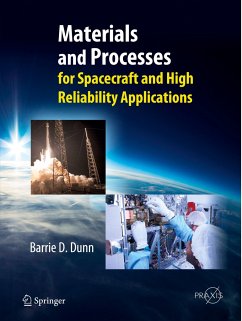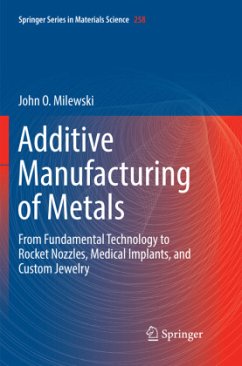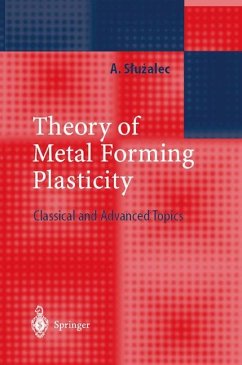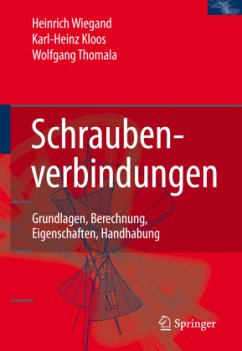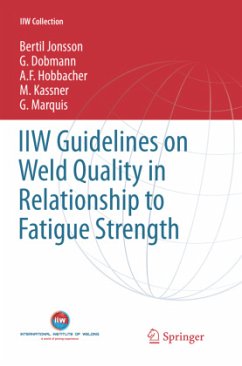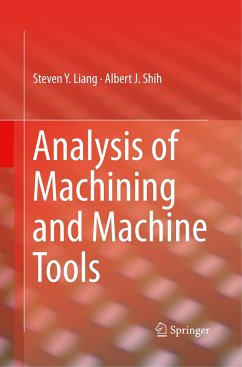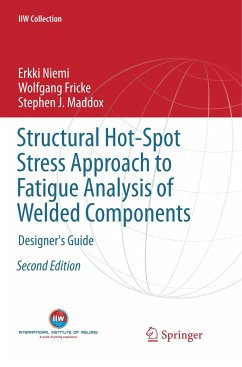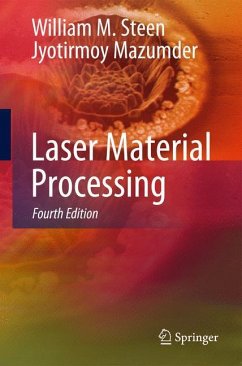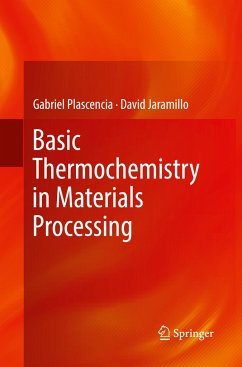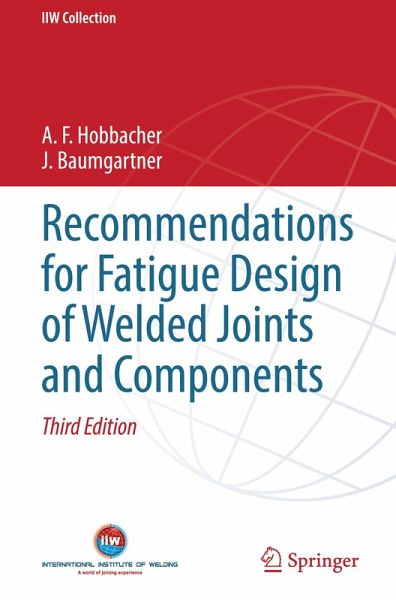
Recommendations for Fatigue Design of Welded Joints and Components
Versandkostenfrei!
Versandfertig in 6-10 Tagen
113,99 €
inkl. MwSt.
Weitere Ausgaben:

PAYBACK Punkte
57 °P sammeln!
This book presents an enriched exploration of structural fatigue assessment. Now in its updated form, this comprehensive edition delves into foundational principles while introducing extensive revisions and fresh content. Notable enhancements include a refined discussion on stress determination, an expanded section on fatigue resistance, also for welded thin sheets, and a thorough update of crucial chapters such as fatigue assessment using S-N curves at constant and variable amplitudes as well as practical application of fracture mechanics on fatigue of welded joints. The addition of new chapt...
This book presents an enriched exploration of structural fatigue assessment. Now in its updated form, this comprehensive edition delves into foundational principles while introducing extensive revisions and fresh content. Notable enhancements include a refined discussion on stress determination, an expanded section on fatigue resistance, also for welded thin sheets, and a thorough update of crucial chapters such as fatigue assessment using S-N curves at constant and variable amplitudes as well as practical application of fracture mechanics on fatigue of welded joints. The addition of new chapters on high-frequency mechanical impact (HFMI) treatment, insightful statistical
considerations based on IIW recommendations, and practical application examples further distinguish this edition. With updated references and meticulous attention to detail, this new edition emerges as an indispensable resource, offering professionals and enthusiasts a deeper understanding of fatigue assessment in structural engineering. Prepared as the result of an initiative by Commissions XIII and XV of the International Institute of Welding (IIW), this book represents a significant contribution to the field.
considerations based on IIW recommendations, and practical application examples further distinguish this edition. With updated references and meticulous attention to detail, this new edition emerges as an indispensable resource, offering professionals and enthusiasts a deeper understanding of fatigue assessment in structural engineering. Prepared as the result of an initiative by Commissions XIII and XV of the International Institute of Welding (IIW), this book represents a significant contribution to the field.




